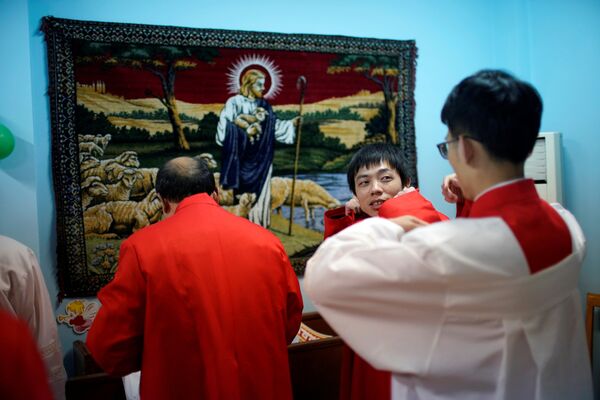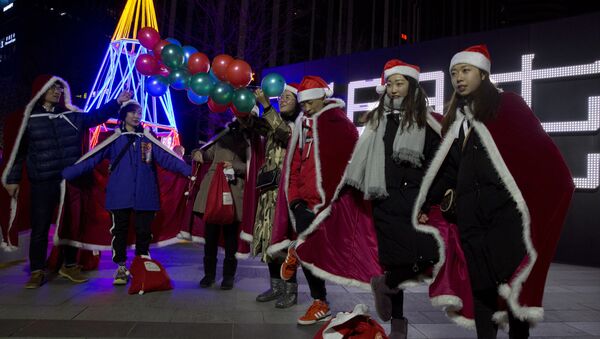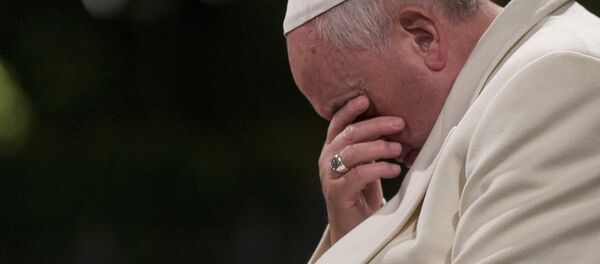Local Chinese authorities in various cities and towns issued similar directives last weeks, urging students of different ages and members of the Chinese Communist Party to avoid taking part in Christmas related celebrations as part of the Chinese government’s efforts to promote traditional Chinese cultural heritage. Most of the directives cited a notice from the general office of the State Council, China’s cabinet, which detailed execution plan of "promoting excellent Chinese traditional cultural heritage and its development."
Chinese media has also been instructed to downplay the concept of Christmas in the coverage of related events. For example, sports publications in China that cover the annual NBA Christmas Day game have been told to avoid focusing on promoting the idea of Christmas, according to a Chinese sports editor who declined to be named due to the sensitivity of the issue. The editor was forced to change his theme of his coverage from "Christmas game" to "year-end game."
Lost Cultural Identity
Almost 40 years after Chinese authorities adopted the policy of reform and opening up, Chinese citizens have been exposed to an unprecedented amount of Western cultural content such as movies, TV shows and music, as well as Western style holiday celebrations. In recent years, Christmas, Halloween and Valentine’s Day have become extremely popular among the younger generation in China, when children can receive gifts, dress up as their favorite characters and young people can go on romantic dates with their loved ones.
However, traditional culture researchers in China expressed their concerns that the influence of Western holidays could cultivate a future generation with diminished cultural identity of being Chinese.
"Western holidays stress on individuality and creativity, especially during holidays such as Halloween when each family needs to come up with their own costume design. But it doesn’t mean we need to chase after those holidays just because they’re more fun. I think the [anti-Western holiday] sentiment in China today may have something to do with cultural identity. Despite those Western holidays being more fun, they could have a negative impact on the identity of ourselves. We need to restrict those holidays within certain limits, as opposed to following them blindly," Yang Lihui, a professor specializing in Chinese folk culture at the School of Chinese Language and Literature under Beijing Normal University, told Sputnik.
READ MORE: Dying to See Your Christmas Presents? Track Santa Online While Waiting!
The Chinese traditional culture researcher pointed out that this is a dilemma many countries face, amid sweeping Western cultural influence under the trend of globalization.
"It’s not just China. Many countries, such as South Korea, have also said that a big part of globalization is westernization. The influence of Western culture comes with technologies invented in the West. Many countries expressed concerns that the growing influence of Western cultures could doubts about their own cultural identity," she said.
"The child loves such activities and she would spend a lot of time learning more about Western holiday traditions. My colleague worried that growing up in such an environment, her daughter would lose interest in learning more about Chinese traditional culture. This would have an impact on the cultural identity of the child," she said.
Promoting Chinese Holidays More in The Press
Facing such challenges in promoting traditional Chinese culture, it’s understandable for local authorities to introduce certain restrictions on Western holidays, the cultural expert suggested.
"I believe there needs to be a certain degree of cultural intervention. That’s because after one or two generations, if everyone only gets excited about Western holidays and does not celebrate traditional Chinese holidays anymore, those holidays could be forgotten. You could face a situation that someone looks like Chinese, but does not know much about traditional Chinese culture. Their cultural identity could be closer to a Westerner," Yang said.
The Chinese scholar believes improved publicity in the media can help traditional Chinese culture become popular among the younger generation again.
The cultural expert suggested it was also up to cultural researchers to come up with new ideas on how to make traditional Chinese holiday activities, such as the art of paper-cutting, more interactive and fun to attract more attention from young people.
Adverse Impact
In the meantime, other Chinese academics argued that Western holidays, especially religious holidays such as Christmas, have been secularized in China and become only commercialized holidays for marketing and shopping.

"Celebrations about Christmas have existed in China for many years. Most people didn’t really stress on the religious aspect of the holiday. This holiday has been secularized in China with the focus on many businesses offering special promotions," Zhan Jiang, a professor of communications studies at Beijing Foreign Studies University, told Sputnik.
The communications professor noted that restrictions on such holidays could lead to adverse results among young people.
"The more you stress on restricting Christmas, you could trigger resentment sentiment among the younger generation, who would do exactly what you tell them not to do. Some internet users in China have already started to point out that Karl Marx, the founding father of Communism, also celebrated Christmas, despite of being an atheist," Zhan said.
The expert added that religious freedom is also a basic right of Chinese citizens protected under the nation’s Constitution.
The views and opinions expressed by Yang Lihui and Zhan Jiang are those of the experts and do not necessarily reflect those of Sputnik.



